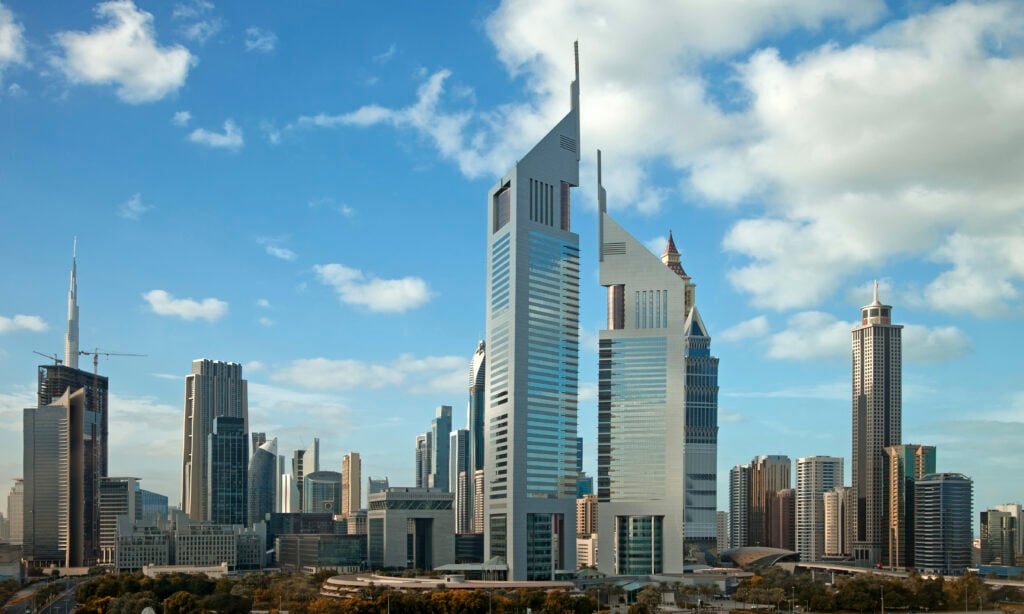In brief
In a recent development, the Ruler of Dubai issued a decree that establishes a new Judicial Authority for the settlement of Jurisdiction Conflicts between the Courts of the Dubai International Financial Centre (“DIFC Courts“) and Judicial Authorities (“Judicial Authority“). The new Judicial Authority replaces the previously existing Joint Judicial Committee that existed under the Dubai Decree No. 19/2016 “On the Formation of the Judicial Tribunal for the Dubai Courts and the Centre’s Courts” (“Decree 19/2016“). The new Dubai Decree No. 29/2024 “On Judicial Authority for Resolving Jurisdictional Conflicts Between DIFC Courts and Judicial Authorities in Dubai” (“Decree 29/2024“) crystalizes the role of the Judicial Authority as an independent judicial authority who has a final say in conflicts of jurisdiction between the DIFC Courts and the onshore Dubai courts and other judicial bodies.
Background
The Emirate of Dubai has long been known for its rare combination of civil law governing the onshore Dubai Courts and a system of common law governing the DIFC Courts operating within the Dubai International Financial Centre (DIFC). Although both are considered to be Dubai courts, over the years, various issues arose as a result of the two systems having no supervisory judicial body and forming in effect two separate systems. Given that Article 7 of the Dubai Law No. 13/2016 “On the Judicial Authority in the Emirate of Dubai” (“Judicial Authority Law“) establishes the system of mutual enforcement of the judgements of DIFC Courts – onshore, and onshore courts – in the DIFC, Decree 19/2016 was adopted to provide a single point of resolution of jurisdictional conflicts. Since then, the Joint Judicial Committee established under Decree 19/2016 has rendered several landmark decisions drawing a line between the jurisdiction of the two systems.
The role of Judicial Authority and Scope of Jurisdiction
The new Decree 29/2024 further clarifies the role and function of the Judicial Authority as a judicial body. Under the previous Decree 19/2016, the Joint Judicial Committee had various functions that were not purely judicial, such as proposing rules that are necessary to prevent conflicts of jurisdiction between the onshore Courts and DIFC Courts and (Art. 2(3) of Decree 19/2016) and advising on ways of co-ordination and co-operation between the onshore and DIFC Courts (Art. 2(4) of Decree 19/2016). The new Decree 29/2024 limits the functions of the Judicial Authority to the following (Article 4 of Decree 29/2024):
- Determining the competent Judicial Body having jurisdiction over any claim or application in respect of which a conflict of jurisdiction arises between the DIFC Courts and any of the Judicial Bodies.
- Determining the judgement that shall be enforced in case of issuance of contradictory judgements by the DIFC Courts and other Judicial Bodies on lawsuits related to the same parties and the same subject matter of the dispute.
Although Article 4(3) of Decree 29/2024 allows the Ruler or the Chairman of the Judicial Authority to delegate additional duties or powers to the Judicial Authority, the exclusion of other powers mentioned in the Decree 19/2016 cannot be unintentional.
Another change in terms of the scope of Judicial Authority’s powers is that it is now empowered to resolve conflict of jurisdiction not only between DIFC Courts and Dubai courts, but between the DIFC Courts and any “Judicial Bodies” (Article 4 of Decree 29/2024). Judicial Bodies include any judicial bodies that are deemed as judicial authorities according to the legislation establishing them. This is broader than Dubai Courts, including, for example, and expressly, the Rental Disputes Resolution Centre (Article 1 of Decree 29/2024).
The effect of the Judicial Authority decisions
Decree 29/2024 provides that the binding effect of the decision of the Judicial Authority is two-fold: vis-à-vis the parties to a specific case, it is final and binding in terms of jurisdiction (Article 9(b) of Decree 29/2024), however, the decision also has binding effects on the courts in other matters (Article 9(b) of Decree 29/2024). Article 9(b) of Decree 29/2024 provides in this respect that “The rules of law established by the Judicial Committee in the decisions issued pursuant to this Decree will be deemed judicial precedents. All judicial entities at all levels, including the DIFC Courts, will be bound by these precedents. Any conflict of a subsequent judicial ruling with any of these rules will provide grounds for challenging that ruling through any legally prescribed means of appeal.”.
Therefore, the Decree 29/2024 now confers a precedent-like effect on the decisions of the Judicial Authority which binds all Judicial Bodies.
Composition of the Judicial Authority
The Judicial Authority continues to be comprised of the Secretary General of the Judicial Council, and three judges from each system of courts:
- The Chief Justices of the Dubai Court of Cassation, the Court of Appeal and the Court of First Instance.
- The Deputy Chief Justice of the DIFC Courts and two judges from the DIFC Courts selected by the Chief Justice of the DIFC Courts.
The President of the Dubai Court of Cassation remains the Chairman, but a new function of Deputy-Chairman is established, with the Deputy Chief Justice of the DIFC Courts assigned to this role (although Decree 29/2024 does not clarify its functions and powers).
Another development is that the two judges selected by the Chief Justice of the DIFC Courts do not need to be one from each of the Court of First Instance and the Court of Appeal, and the Chief Justice of the DIFC Courts is not assigned a seat in the Judicial Authority.
Procedures
Procedures provided by Decree 29/2024 remain consistent with Decree 19/2016. The Judicial Authority considers cases upon application of a party, where (i) there is a conflict of jurisdiction and (ii) none of the Judicial Bodies relinquished the claim, or both of them did, or the Judicial Bodies issued contradictory judgements thereon.
Decree 29/2024 also includes the following developments:
- The Attorney General is not authorized to refer the matter to the Judicial Authority.
- Decree 29/2024 does not provide for the period for consideration of a request, unlike the previous Decree 19/2016.
- The provisions on stay of the proceedings have been amended – arguably to more clearly provide for an automatic stay of the proceedings in case of a referral to the Judicial Authority.
Article 7 of Decree 29/2024 provides, consistent with Decree 19/2016, that pending the consideration of the request by the Judicial Authority, (i) the proceedings subject to the requests are stayed; (ii) the relevant execution proceedings are stayed; and (iii) limitation periods are suspended for the period from the date of submittal of the claim to the Judicial Authority.
However, the wording that “the reference of a dispute” results in stay was replaced with the language suggesting that the consideration of the application by the Judicial Authority stays the proceedings. This is inconsistent with the approach of the DIFC Courts adopted in Lakhan v. Lamia [2021] DIFC CA 001, where the Court of Appeal established that the DIFC Court has to be satisfied that there is a genuine conflict of jurisdiction to impose a stay.
It remains to be seen how the DIFC Courts will apply the amended wording. A combination of the automatic stay of the proceedings and the absence of a period for the consideration of a request by the Judicial Authority has been said to create a possibility of prolonged stays of proceedings.






